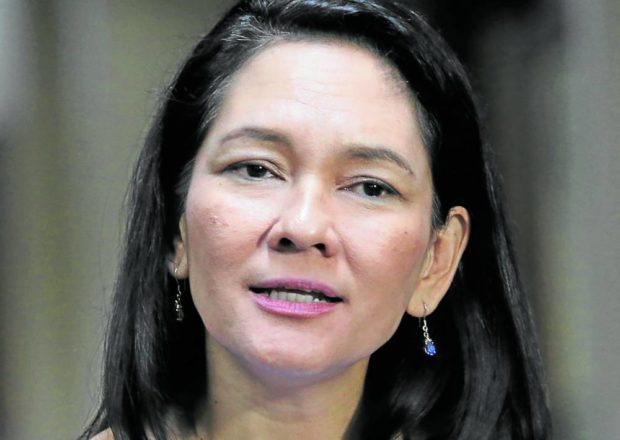MANILA, Philippines — Sen. Risa Hontiveros has sounded the alarm on a thriving underground market for photos and videos of Filipino children on Facebook public groups that apparently cater to sexual predators.
The chair of the Senate committee on women and children said her team discovered that the groups were either posting lewd images of minors to attract an audience or selling the photos or videos on more secure messaging apps, such as Telegram.
At least six different Facebook groups named “LF bunso and kuya (looking for youngest and older brother)” had as many as 24,000 followers, with about 50 posts a day, Hontiveros said.
Other groups went by the name “atabs,” from the Filipino word “bata” or child spelled backwards, she said.
“It is sickening to see how many people brazenly abuse our young people. They use Facebook and Telegram to transact and sell thousands of pictures and videos, while others use cloud storage platforms like Mega because of the large volumes,” she said on Tuesday.
Hontiveros shared screenshots of some of the pages with the perpetrators posting photos of scantily-clad young girls and luring users to join chat groups where the trade for nude photos or videos was allegedly taking place.
“Who wants atabs vid (video)? PM lang po, load lang kapalit (send me a private message, will send video in exchange for cell phone load),” one user said.
“Baka want nyo. Mura lang. GCash only (You may want this. It’s cheap. I accept only GCash),” another said.
As a come-on to prospective clients, sellers show thumbnails of a Mega drive to which they can be given access. One is shown to contain as many as 167 gigabytes of material, based on the screenshots.
Urgent bill
The thriving illicit trade should prompt President Marcos to immediately sign into law the anti-online sexual abuse and exploitation of children (OSAEC) bill, Hontiveros said.
“As a mother, I am more worried for the security of our children on the internet,” she said in a statement, adding: “The internet has become a way of life for our youth; but this should not play a part in their abuse and exploitation, whether online or offline.”
Hontiveros said she was appalled by the discovery of the predatory groups, only days after her social media followers succeeded in getting the “Usapang Diskarte” Facebook page and YouTube channel taken down for supposedly giving subscribers tips on how to prey on children.
Facebook and YouTube took down the page and channel, respectively, after the senator’s followers acted en masse to report the account.
Takedowns not enough
But taking down online platforms engaging in these activities is not enough, Hontiveros said.
“Even if these are reported, they will only keep on putting up more pages with the use of other accounts. Social media platforms and messaging applications should now be more proactive in stopping these activities that gravely harm our children,” she said.
The senator called for the immediate passage of the draft OSAEC law “to genuinely hold the perpetrators and the social media platforms and their internet intermediaries who have allowed this hideous trade to proliferate.”
The measure, Senate Bill No. 2209, is now awaiting the President’s signature after it was passed in the 18th Congress. Its enrolled version was transmitted to Malacañang on June 29.
Unless vetoed, the enrolled bill will lapse into law on July 28.
ISPs must cooperate
It prohibits, among others, the “production, direction, manufacture, facilitation or creation” of any form of exploitative material that facilitates child sexual abuse, or participation in such acts.
It also makes it unlawful to publish, offer, transmit, sell, distribute, broadcast, advertise, promote, export or import such content. Mere possession of the material is already deemed illegal.
Under the bill, “intermediaries,” such as internet service providers, content hosts, hosting services, online payment platforms and electronic money issuers, are required to cooperate with law enforcement agencies for the prosecution of offenders. They should, for example, identify the users and report their activities to the police.
The ISPs and other intermediaries are also duty-bound to take down or restrict access to any page involved in child sexual exploitation.
The bill imposes a penalty of life imprisonment and a fine of up to P5 million. Government employees convicted of the offense face dismissal from the service and a ban from public office. INQ
